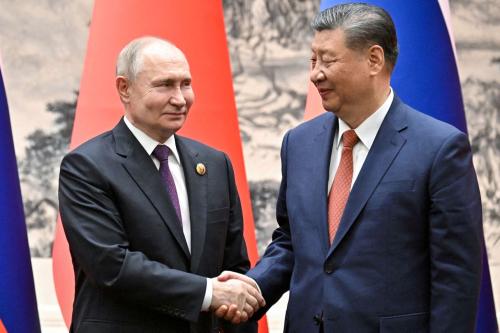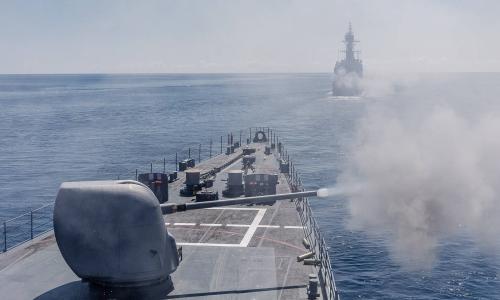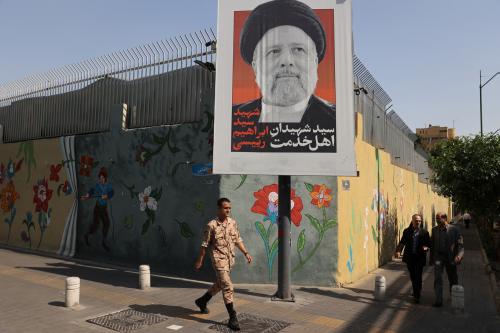One week after the conclusion of the trial of former Chinese Communist Party (CCP) heavyweight Bo Xilai, a new political drama involving money and power (but so far neither sex nor murder) began to unfold in Beijing. During the last week of August, the CCP’s Central Discipline and Inspection Committee (CDIC) announced that four executives at China National Petroleum Corporation (CNPC) – which ranks number five on the Fortune Global 500 list for 2013 and is one of China’s most profitable and powerful state-owned enterprises – were under investigation for disciplinary violations. On September 1, the CDIC announced that it was investigating an even more prominent individual – Jiang Jiemin, the director of the State-Owned Assets Supervision and Administration Commission (SASAC), which is the controlling shareholder in the approximately 100 enterprises in strategic industries ranging from automobiles to petroleum to telecommunications that are owned by the Chinese government. Jiang, a career oil man, held top jobs at CNPC in the late 2000s, including chairman of CNPC’s internationally-listed subsidiary, PetroChina, from 2011 to 2013, from which he assumed the top position at SASAC. All five individuals were subsequently removed from their posts.
The investigations into Jiang and the quartet of CNPC executives (“the CNPC investigations”) have generated much speculation inside and outside of China about the purpose of the probe. Three of the leading hypotheses under discussion include cracking down on corruption, weakening vested interests and punishing recently retired Politburo Standing Committee (PBSC) member Zhou Yongkang, another career oil man who oversaw China’s domestic security from 2007-2012. These hypotheses are not mutually exclusive.
Hypothesis 1: The CNPC investigations are aimed at cracking down on corruption.
The CCP has indicated that the investigations are about corruption. The reason given by the CDIC for the investigations into Jiang and each of the CNPC executives was “serious violations of discipline,” which often refers to corruption. In addition, a Politburo meeting convened on August 27 stressed the importance of both punishing and preventing corruption.[1]Since then, Chinese media reports have begun to provide information on alleged incidents of graft at CNPC and the inquiries into wrongdoing at the company.[2]
CNPC was probably an appealing target because the excesses of Chinese oil companies have been widely criticized by the Chinese public. CNPC’s domestic peer, China Petrochemical Corporation (Sinopec), was previously a poster child for oil executives behaving badly. In 2007, former Sinopec chairman Chen Tonghai, who reportedly charged almost $6000 per day in personal expenses, was removed from his post on charges of corruption and subsequently convicted of accepting bribes, for which he is now imprisoned.[3]In 2011, invoices detailing liquor purchases of nearly $450,000, including some very expensive bottles of French wine, by Sinopec’s Guangdgong branch appeared on the internet, prompting some Chinese netizens to draw a link between the “astronomically-priced” liquor bill and the higher prices they were paying at the pump.[4]
The probe into graft at CNPC is part of CCP General Secretary Xi Jinping’s anti-corruption drive. When he took over the top spot in the CCP in November 2012, he warned that corruption posed a grave threat to the Party.[5] The CNPC investigations indicate that Xi is making good on his promise to go after both flies (low-level crooks) and tigers (high-level crooks). Jiang is one of several tigers who have been trapped by Xi. The others include Liu Tienan, the former director of the National Energy Administration, and Xu Long, the former general manager of China Mobile’s Guangdong branch.
Hypothesis 2: The CNPC investigations are aimed at gaining control over vested interests.
The inquiry into graft at CNPC is a sign that Xi’s administration intends to take on vested interests likely to oppose reforms needed to move China’s economy onto a more sustainable growth path which are expected to emerge at the Third Plenum in November. Prime Minister Li Keqiang indicated a willingness to tackle the problem of vested interests in his first remarks as Prime Minister in March, when he stated that “stirring up vested interests is more difficult than stirring up one’s soul. But no matter how deep the water is, we must wade through because we don’t have any other options — it’s our nation’s fate and future that are at stake.”[6] The CNPC investigations are a plunge into the deep water; it’s hard to find an interest group with more at stake in the current system than the oil industry.
CNPC, Sinopec and China National Offshore Oil Corporation (CNOOC) have benefited tremendously from the status quo. They monopolize China’s oil market, enjoy access to top leaders, and influence policy, sometimes advancing corporate interests at the expense of national ones. The wealth — and arguably the power — of the oil companies and their senior managers has grown over the past decade thanks not only to their monopoly but also to sustained high oil prices and low dividend payout rates. Indeed, one of the reasons for the reshuffling of top executives at the three oil companies in April 2011 — and the establishment of boards of directors at CNPC, Sinopec and CNOOC — was to prevent the accumulation of too much power in the hands of the number one boss. (Interestingly, the rotation of the oil executives involved Jiang.)[7]
Hypothesis 3: The CNPC investigations are aimed at punishing Zhou Yongkang.
The ultimate target of the CNPC investigations is former Politburo Standing Committee member Zhou Yongkang. While it’s not exactly clear why Xi would go after Zhou, one popular explanation is that Xi is seeking to consolidate power at the apex of the Chinese party-state.[8]
This argument is supported by the fact that CNPC is one of Zhou Yongkang’s two power bases where individuals are under investigation, some of whom have close ties to Zhou. The other is Sichuan Province.
Zhou Yongkang, who spent more than thirty years working in China’s oil industry, not only served as general manager of CNPC from 1996-1998, he also has personal connections to at least three of the CNPC executives under investigation. The most important one is Jiang Jiemin. Jiang and Zhou worked together at the Shengli Petroleum Administration (which became part of SINOPEC in 1998), where Zhou was director general and party secretary from 1988 to 1996 and Jiang was deputy director from 1993-1994. Jiang is widely believed to be a protégé of Zhou, who promoted Jiang within CNPC.[9] The second is Li Hualin, who served as an assistant to Zhou at Shengli in the late 1980s.[10]
At least two of the former officials under investigation in Sichuan Province, where Zhou served as party secretary from 1999-2002, also have ties to Zhou. The first is Guo Yongxiang, who was deputy secretary general of the Sichuan party committee from 2000 to 2002 and secretary general from 2002-2006. He became the target of an investigation of the CCP’s Central Discipline and Inspection Committee for “serious violations of party discipline” in June 2013. Guo worked with Zhou between 1990 and 2002, first at Shengli, then at the Ministry of Land and Resources (where Zhou was Minister from 1998-1999) and finally in Sichuan. Guo’s career path suggests that he is a protégé of Zhou.[11] The second is Li Chuncheng who was deputy party secretary of Sichuan Province from September 2011 until December 2012, when he became the subject of a CDIC investigation. Li also held several government and party positions in Sichuan while Zhou was provincial party secretary, and the two are widely reported to have been close associates.[12]
If recent Chinese history is any guide, the investigations into the above individuals with ties to Zhou Yongkang may indicate that Zhou is the ultimate target. As Alice Miller explains in an essay in the Summer 2012 issue of the China Leadership Monitor, the takedowns of former Beijing party chief Chen Xitong in 1995 and former Shanghai party boss Chen Liangyu in 2006 both started with corruption investigations involving their subordinates.[13] However, it is worth noting that both Chens were Politburo members, whereas Zhou was a PBSC member; some analysts suspect that Zhou might be untouchable because he served on the PBSC.[14]
What’s really going on?
While we’re still in the early days of these probes, the simplest explanation – and the one which currently appears to have the most publicly available evidence to support it – is that the CNPC investigations are about what the CDIC indicated they are about: cracking down on corruption, which is an existential threat to the CCP. The investigations may also be a means to other ends. One likely end is weakening vested interests likely to oppose reforms necessary to put the Chinese economy on a more sustainable growth path and to avoid the middle-income trap, which would also pose a threat to the CCP. It is also possible that the investigations are targeting Zhou Yongkang since they involve individuals from his power bases. However, the other two hypotheses can explain the CNPC investigations without reference to Zhou. Unless and until the CDIC publicly announces an investigation into Zhou, it will be hard to say for sure if he is indeed one of the tigers being hunted by Xi.
[1] “China Focus: CPC’s November meeting to discuss deepening reform,” Xinhua General News Service, August 27, 2013.
[2]See, for example, Zhou Yuanzheng, “Zhongshiyou bi an xuanwo: Jiemi Li Hualin Kunkun nengyuan diguo” (“The whirlpool of fraud at CNPC: Demystifying Li Hualin’s Kunlun energy empire”), Zhongguo jingying bao (China Business News), September 7, 2009, http://www.cb.com.cn/companies/2013_0907/1012015.html.
[3] Andrew Higgins, “China’s oil giant runs up a scandalous booze bill,” Washington Post, May 8, 2011.
[4]Ibid; and Jason Chow, “Sinopec’s Liquor Problem, “China Real Time Report, April 19, 2011, http://blogs.wsj.com/scene/2011/04/19/sinopecs-liquor-problem/.
[5] Michael Forsythe, “China State-Assets Head Removed as Graft Inquiry Gains Pace,” Bloomberg News, September 3, 2013, . http://www.bloomberg.com/news/2013-09-03/china-s-sasac-backs-jiang-probe-as-vows-to-support-xi-policies.html.
[6]“Li Urges Paring State Role to Fuel 7.5% China Growth,” Bloomberg News, March 17, 2013, http://www.bloomberg.com/news/2013-03-17/china-s-li-vows-to-keep-7-5-growth-and-spread-wealth-benefits.html.
[7] Erica Downs and Michal Meidan, “Business and Politics in China: The Oil Executive Reshuffle of 2011,” China Security, No. 19 (2011).
[8] See, for example, “The plot thickens; political maneuvering,” The Economist, September 7, 2013.
[9] Wayne Ma, “Targets in Probe Tied to Shengli Oil Field,” China Real Time Report, September 2, 2013, http://blogs.wsj.com/chinarealtime/2013/09/02/targets-in-probe-tied-to-shengli-oil-field/.
[10] Ibid.
[11] Chi-yuk Choi, “Anti-graft campaign claims another big fish,” South China Morning Post, June 24, 2013.
[12] “China politics: the party is not yet over for corrupt officials,” The Economist, February 12, 2013.
[13] Alice Miller, “The Bo Xilai Affair in Central Leadership Politics,” China Leadership Monitor, No. 38 (Summer 2012).
[14] Chris Buckley and Jonathan Ansfield, “Senior Chinese Official Falls Under Scrutiny as Some Point to Larger Inquiry,” New York Times, September 1, 2013.



Commentary
Tiger Hunt in China’s Oil Patch: Why Are So Many Former Oil Executives Under Investigation?
September 13, 2013